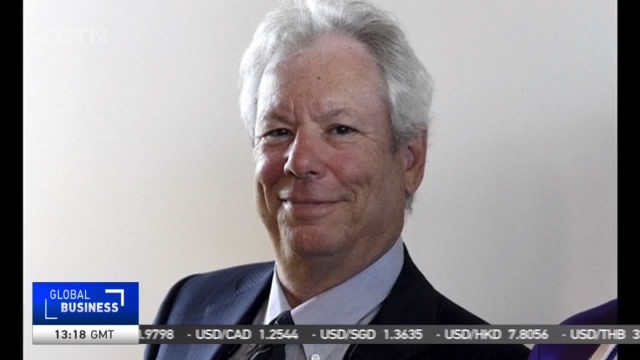
21:29, 09-Oct-2017
Nobel Prize in Economics: Thaler wins for work in behavioral economics

The winner of 2017 Nobel Prize in economics, American economist Richard Thaler said the realization that human behavior is able to affect markets is the most important impact of his research. Let's find out more about the achievements of the University of Chicago economist.
The Royal Swedish Academy of Sciences on Monday called Thaler a pioneer in behavioural economics and recognized his contributions, showing that human feelings can affect supposedly rational markets. The academy said Thaler had demonstrated how the limitations of an individual's knowledge in decision-making and other factors can affect market outcomes.
Thaler developed the idea of "nudge" economics, where humans are guided toward beneficial behaviours without heavy-handed compulsion. Thaler co-wrote a book on that theme in 2008, which caught the eye of policymakers around the world. Thaler is the director of the Center for Decision Research at the University of Chicago's Booth School of Business. Thaler will get a prize of 9 million Swedish crown, or about 1.1 million U.S. dollars.
RICHARD THALER 2017 NOBEL PRIZE WINNER IN ECONOMICS "Well, I was pleased. I no longer will have to call my golf buddy Jim Palmer"
The U.S. has dominated the economics prize, with American economists accounting for roughly half of all laureates since the inception of the award. Between 2000 and 2013, U.S. academics won or shared the prize every year. Past winners have included Milton Friedman, in 1976, whose work is a cornerstone of current monetary policy. And James Tobin, in 1981, who proposed countries should tax financial transactions.

SITEMAP
Copyright © 2018 CGTN. Beijing ICP prepared NO.16065310-3
Copyright © 2018 CGTN. Beijing ICP prepared NO.16065310-3